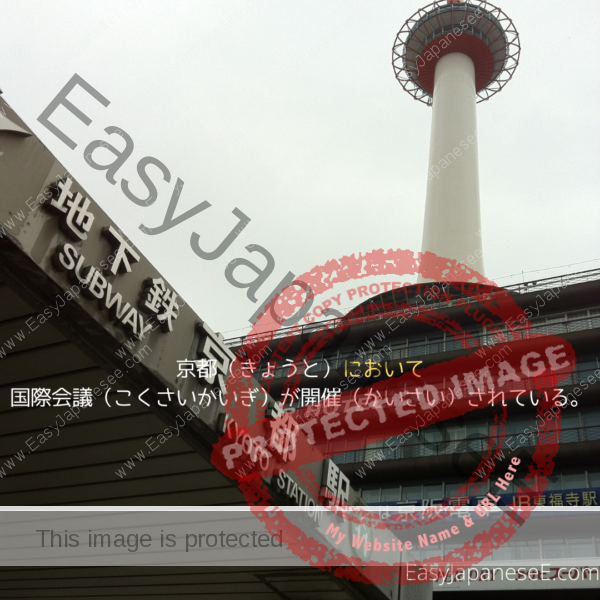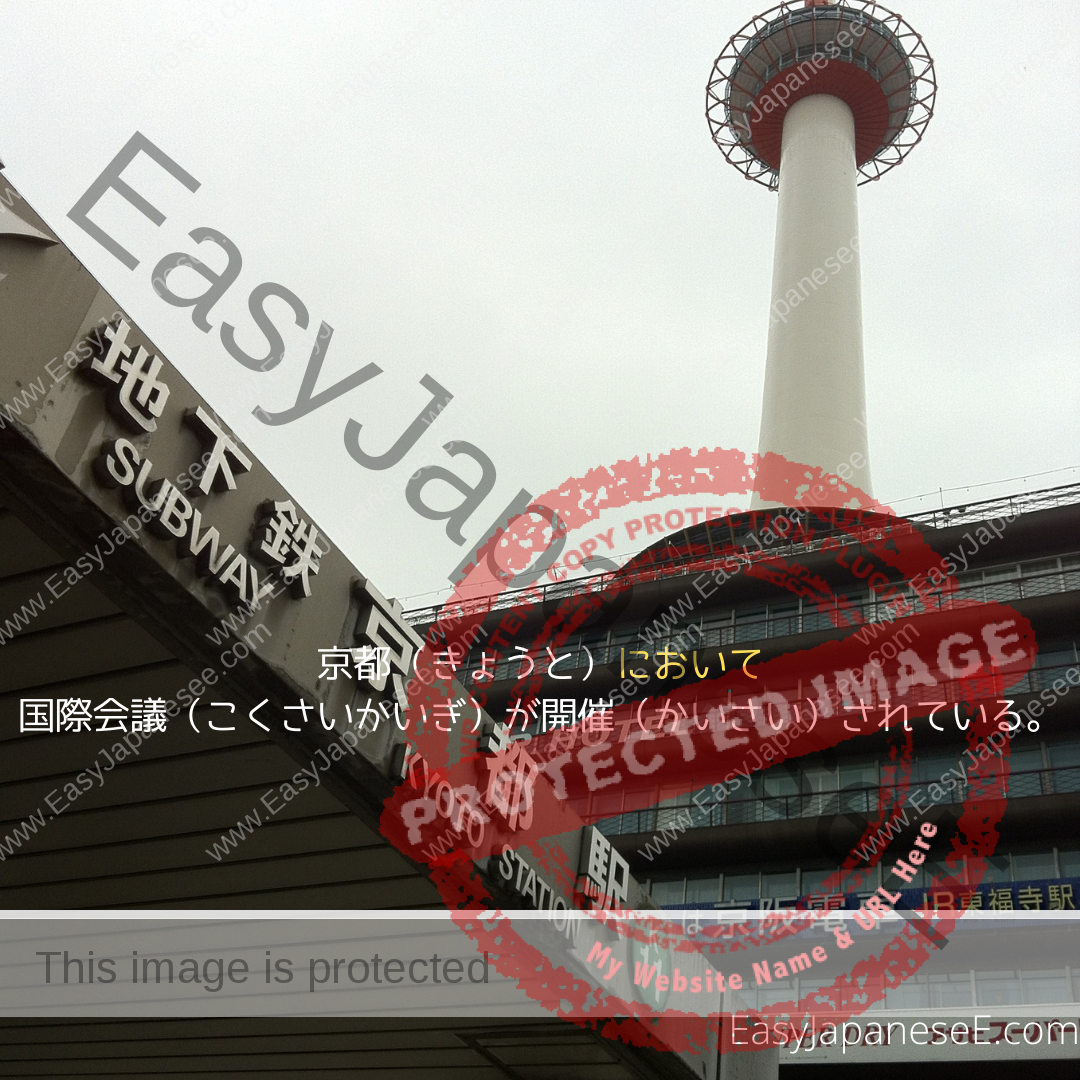
~において is used after a noun indicating one of the following and usually makes an adverbial phrase, i.e. ~において usually modifies the verb or adjective that follows ~において. ~において can be followed by は which is used either for emphasis or showing contrast.
- place
- institution or position
- time or occasion
- point or matter
Connection
- [noun] において
- [noun] における [noun]
Examples
京都において国際会議が開催されている。
An international conference is being held in Kyoto.基本的人権は憲法において保証されている。
Basic human rights are guaranteed in the Constitution.お問い合わせは当方において承っております。
We accept inquiries.教員の採用は教育委員会において行われている。
Recruitment of teachers is carried out by the board of education.過去においてこのような事例はございませんでした。
There have been no such cases in the past.近い将来においてこのようなことがまた起これば、大問題になる。
If this happens again in the near future, it will be a big problem.エイミーさんは経歴においてこの仕事に最適だ。
Amy is the best fit for this job in her career.内容においては問題はないが、若干長すぎる。
There is no problem with the content, but it is a little too long.
~における
~における is very similar to ~において but ~における is an adjectival phrase, so it usually modifies a noun
京都における国際会議
International conference held in Kyoto憲法における基本的人権の保証
Guarantee of basic human rights in the Constitution当方におけるお問い合わせへの対応
Responding to inquiries on our side教育委員会における教員の選考
Selection of teachers by the board of education過去における事例
Cases in the past近い将来における再発
Recurrence in the near future経歴における優秀さ
Excellence in career内容における問題
Problems with the content
Archaic usage of ~における
Having said that ~における has an archaic meaning of “(the relationship) with/to ~” and it is often used for the translation of “A is to B is what C is to D.”
読書の精神におけるは食物の体におけるに等しい。
Reading is to the mind what food is to the body.葉の植物におけるは肺の動物におけるがごとし。
Leaves are to the plant what lungs are to the animal.
For more JLPT N3 grammar items, please visit my JLPT N3 Grammar page.
If you’ve liked this post, please share it with your friends using your social media accounts.

